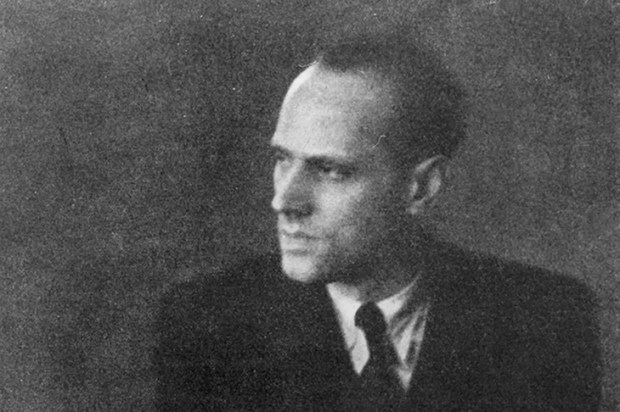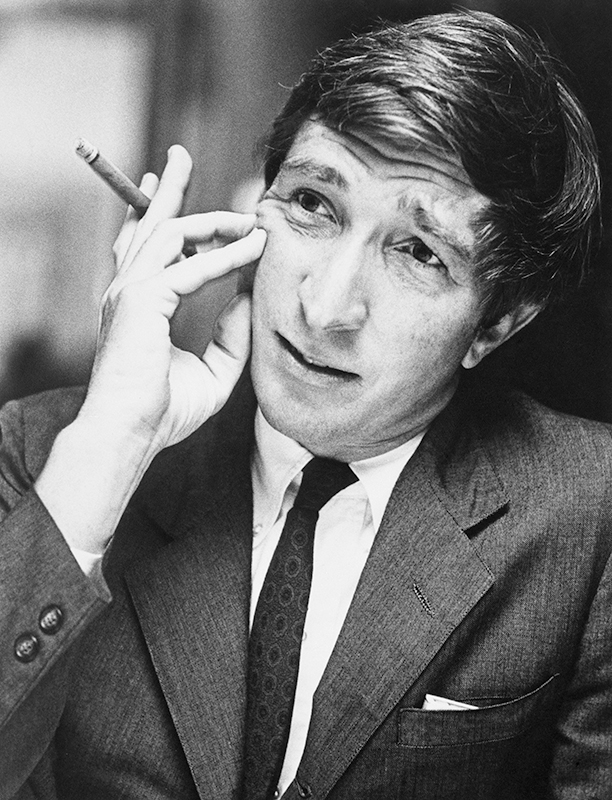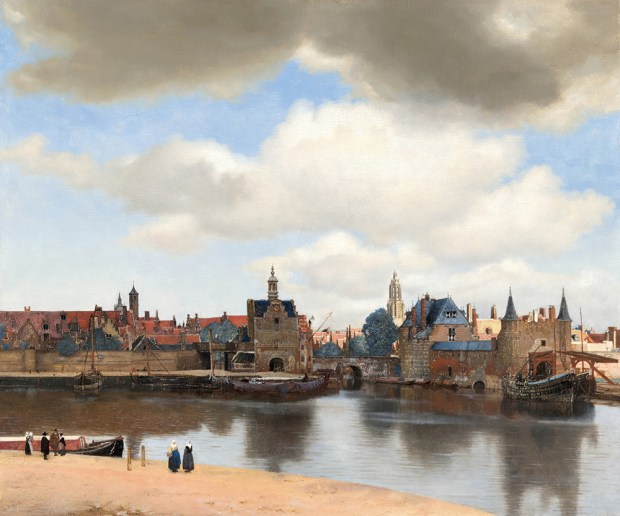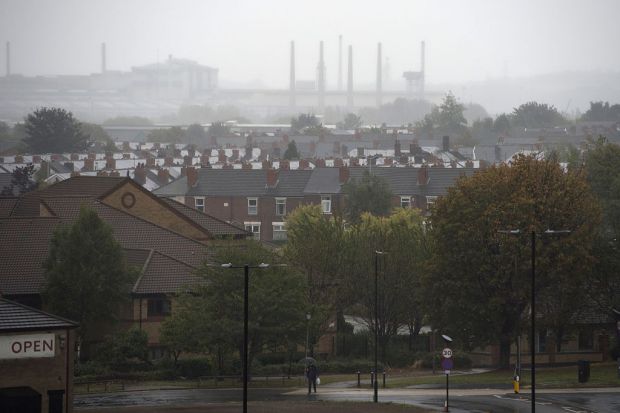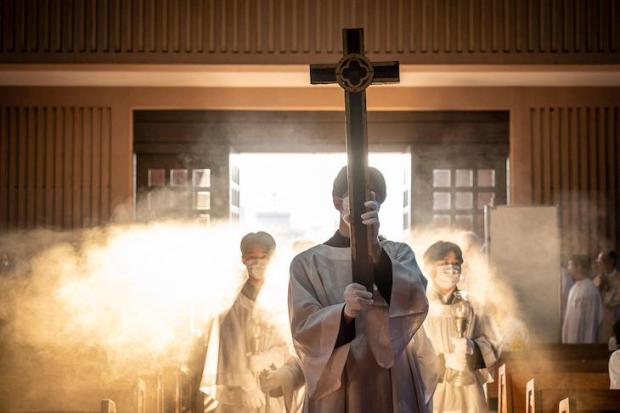‘True crime’ is a genre that claims superiority over imagination, speculation and fantasy. It makes a virtue of boredom and detailed accounts of procedure and paperwork, and characteristically narrates two things: the process of investigation and discovery, and the events that set them off. But what happens if those procedures can’t be narrated? What becomes of the genre’s claims of full and complete truth?
Owing to legal strictures, Thomas Harding has written a book which, I feel, falls frustratingly short of the book he wanted to write. The murder of an 87-year-old semi-derelict, Allan Chappelow, in Hampstead in 2006 was followed by the trial of a Chinese crook and liar named Wang Yam. The trial was in part held in camera, and it was made clear to Harding that he could not discuss certain aspects of the case, or speculate about why the trial was conducted in this extraordinary way. Nor may a review of Harding’s book speculate in its turn. This insuperable fact clearly makes the story imperfect and unsatisfying. It would have been better to have handed the whole thing over to a crime novelist, who would have been free to make up whatever he or she wanted.
Chappelow lived at 9 Downshire Hill, a historic and potentially beautiful house in Hampstead which his family had owned since his childhood. He had had no particular career. Coming from an upper middle-class background and apparently lacking in any self-doubt, he had written a couple of very poor books about George Bernard Shaw after a research degree at LSE came to nothing. He was harmlessly left-wing, taking holidays in the Soviet Union and Albania and writing one-off features about his adventures. (‘Albania is a medley of colour and sound against a background of wild but often beautiful mountains.’)
By the end of his life his house too was almost derelict, since he had no ready money. He was a familiar figure to his neighbours, some of whom quite liked him, though he seems to have been a great bore on the subject of Tony Blair’s inadequately radical politics. Had he sold up for several million and moved to a flat in Brighton he might have been perfectly safe.
But in June 2006 he was found dead in his house — the interior of which was in such a dreadful condition that it took several days to unearth the body from beneath a pile of papers. It was determined that he had been murdered some weeks earlier. It was also discovered that money had been taken from his bank account by a Chinese man, soon identified as Wang Yam.
Wang Yam’s story cannot be told in full, partly because of legal restrictions and partly because he was clearly such a wretched liar, though Harding does his best. Wang claimed to be the child of a rural Chinese doctor; to be the grandchild of important political figures; to have been both involved with the Chinese authorities as a trusted figure in Beijing and to have been closely connected to the protesters in Tiananmen Square. After that, he fled to the west, where his stellar career, in his own terms, continued.
Harding recounts all this with a straight face, but I don’t think he really expects one to believe it: it is full of inconsistencies and hardly any of it can be corroborated. In reality, it seems more likely that Wang was a chancer who escaped mainland China via Hong Kong and spun a tale about being in danger in order to gain a visa.
His life in Britain can be verified, how-ever, and its catalogue of fraud, theft and petty villainy makes for sorry reading. There doesn’t seem to be any evidence that Wang ever met Chappelow. The overwhelming likelihood is that he assumed that the house on Downshire Hill, though still receiving mail, had been abandoned, and he broke in to steal credit card statements, perhaps without even realising that the owner was lying dead upstairs. Nevertheless, this connection was enough to charge Wang with Chappelow’s murder, and he was convicted. His defence — what we know of it — was an absurd farrago of lies and implausibilities. It is not altogether surprising that such a person might have concocted the sort of fantastic story that pretended to involve national security.
And there is a much more plausible explanation for Chappelow’s death. He was, it gradually emerged, a closet homosexual who was in the habit of trying his luck on Hampstead Heath of an evening. In most cases, such encounters are harmless. But it just so happened that Hallam Tennyson, another elderly homosexual living in the neighbourhood — also a habitué of Hampstead Heath’s cruising grounds — was murdered by a pick-up around the same time.
The Metropolitan Police are not very clued up about gay life. More recently — apparently unknown to Harding — the serial killer Stephen Port murdered four gay men The police assumed the deaths were just an unfortunate part of gay existence, in the way that, in the 1990s, they treated Colin Ireland’s victims as participants in a sadomasochistic scene that had gone wrong. (Ireland took to phoning the police to complain that they hadn’t noticed there was a serial killer on the loose.)
Perhaps Harding hasn’t much idea about gay life either. He certainly seems keen to refer to his wife, while passing random judgments on the physical attractiveness of the women involved in the story. (Wang’s partner Dong Hui is ‘a small, pretty young Chinese woman’; a certain Jenny Zhao is ‘a tall, slender and attractive Chinese woman’; another, Li Jia, is ‘both attractive and intelligent’, and so on.) Rather alarmingly, Hampstead Heath’s cruising grounds are described as ‘where delinquents, thieves and perverts… roam the woods’. But at least he recognises that Chappelow might have been homosexual and exceedingly vulnerable, which never seemed to cross the minds of the police until one brave individual came forward to supply evidence.
It must be said that there isn’t quite enough material here for a book — with no story of a relationship to be told between Chappelow and Wang, or anyone else. The demands of the genre mean that space is filled instead with extensive accounts of procedure and investigation, some of which are implausible. It can hardly have come as a shock to Harding — as he claims — that transcripts of the trial are not available. There is quite a lot of this sort of thing:
Though a house search was a matter of some urgency, the detectives would still need a warrant. To obtain one at short notice and at this time of the day would require some skill. Luckily, from a previous case, Devlin knew of a friendly magistrate who lived in Hampstead. The drive to the magistrate’s house took Devlin and Pickering just over an hour. They pulled up outside a small, detached property on one of Hampstead’s side streets. Devlin rang the bell and shortly afterwards the door was opened by an elderly woman who appeared ready to go out.
I will save you the tension, and reveal that the warrant was issued without any problems. Can it be that the investigative palaver of the true crime genre has lured Harding into the belief that we’re more interested in what a policeman does to extract a search warrant from an off-duty magistrate than in the human beings involved in the case?
All we really know about the two central figures is that one was an idle bore and the other was a liar. A good novelist might have been able to discover more. If Ruth Rendell had got around to this case, the result would have been spectacular.
Got something to add? Join the discussion and comment below.
You might disagree with half of it, but you’ll enjoy reading all of it. Try your first month for free, then just $2 a week for the remainder of your first year.


